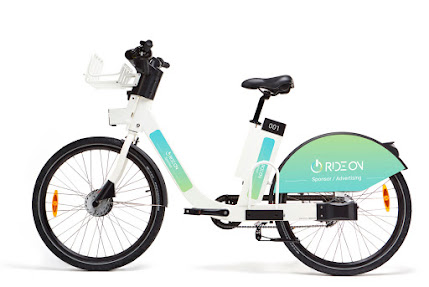Understanding Clearance Electric bike power, Range, and Energy
What's the distinction between watts and watt-hours, and how far would I be able to go?
All new fields carry with them another jargon. Take vehicles, for
instance: Carburetor, Choke, quarter board, differential, and two or three
thousand different terms were made or repurposed to mark the innovation. So
essentially, there are a couple of new words and ideas that you'll need to
figure out how to speak proficiently about eBikes.
Force is a recognizable car idea. It's a proportion of how rapidly you
can take care of a job. With more force and extensive methods, you can speed up
more rapidly or climb a more extreme slope without easing back down. With
vehicles and bikes, for instance, power is typically estimated in strength, and
we as a whole know the contrast between a motorbike with five hp and one with 30 mph electric bike UK.
Another unit for power is the kilowatt, by and large utilized with the
decimal standard and—in the US—to quantify the force of electric engines. One
kilowatt is characterized to be about 1.34 hp. You can similarly as promptly
say a little cruiser with ten hp has around 7 kilowatts.
Be that as it may, with regards to eBikes, a kilowatt, an entire 1,000
watts is frequently too enormous a unit. Therefore, EBikes are, for the most
part, evaluated in unprefixed watts, with power going from 250 to around 900
watts. On the off chance that you need to consider that as far as to drive,
about 33% of the torque is about 1.2 hp. Similarly, with vehicles, an electric
mountain bike with more force can speed up more rapidly or convey more weight at
accelerating a lofty slope.
What do watts on an electric mountain bike mean?
To get some viewpoint for what force implies in human terms, we can take
a gander at the number of watts a commonplace rider utilizes on a standard
bike. Simply accelerating along at a regular cruising speed for a non-donning
rider (around nine mph) takes around 30 watts, about similar energy as ordinary
strolling. Go up to 20 mph, and in this manner quickly expanding streamlined
burdens, and 220 watts is required—beyond what most non-competitors can
maintain. Riding up a gentle 10 percent grade at only quicker than a mobile
speed takes 150 watts—enough to have most riders breathing and perspiring
intensely. However, visit de France quality racers can put out 400 watts for 60
minutes, and someplace more than 1000 watts on the short run to the completion
toward the finish of a race. The 750 watts took into account e-bicycles under
US guidelines imply we would all be able to have the legs and lungs of an
expert bike racer.
The other significant idea with an electric mountain bike is energy. Force is about speed increase. However,
energy is about range. In a regular vehicle, energy is put away as gas and
changed by the motor into power. Likewise, in a vehicle, we don't unequivocally
consider energy, just the quantity of gallons of gas we have and how far that
will probably convey us.
E-bicycles are significantly more immediate. Energy is put away in the
battery and took care of the bicycle's electric engine to make power. The units
of electric force are watt-hours, which is the number of watts that can be
conveyed for an hour by the battery. Average Clearance electric bike batteries
range from around 300 watt-hours (shortened WH) to around 1,000 WH. As a
general rule, the last would be communicated as 1 kilowatt-hour (kWh), kilo being
the prefix showing 1,000.
Likewise, with vehicles, Clearance electric bike mileage differs. The US Environmental Protection
Agency (EPA) began a framework to rate electric vehicles and think about them
against gas vehicles, called MPGe (miles-per-gallon-electric). An electric
vehicle normally gets 90 to 130 MPGe. Most eBikes get somewhere near 2,000 MPGe
on this action, around multiple times more proficient with power than a Tesla
Model S.




Comments
Post a Comment